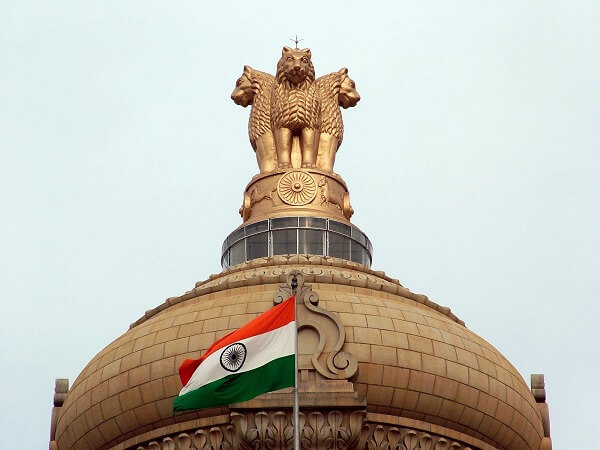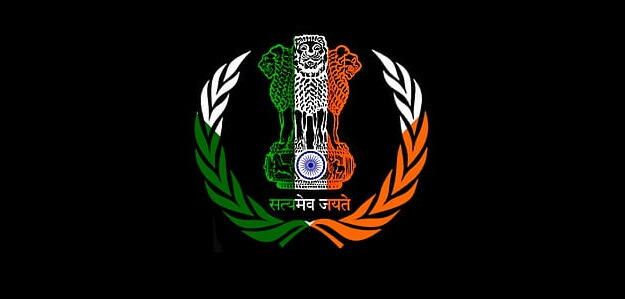Essay For UPSCThe Union Public Service Commission (UPSC) organises the Civil Services Examination (CSE). It is a national-level competitive test in India, to select candidates for the country's numerous civil services. It was first launched with it's name as the Public Service Commission on October 1, 1926, and was afterwards it's name was modified to the Federal Public Service Commission by the Government of India Act of 1935. It is called the Union Public Service Commission of the present after India's independence. Though the Department of Personnel and Training is India's biggest personnel agency, which is in charge of all Group "A" position nominations and tests for all central government entities, along with all central public sector organisations and all central non-governmental organizations. The Services Under the Union and the States section of Part XIV of the Indian Constitution grants the agency its authority. The Constitution asks the commission to make arrangements for the Union and All India Services. The government must also consult with UPSC on issues such as recruiting, transferring, promoting, and supervising employees. The panel can provide government guidance through the President, to whom it responds directly. However, the government is not forced by certain advice to along with the country's higher courts. The commission has its own secretariat and is based at Dholpur House in New Delhi. Since April 5, 2022, Dr Manoj Soni has ruled as chairman of the UPSC. 
List Of Services In UPSCIt is the most complicated test in the nation and the second toughest in the world. The UPSC organises the one-year test. Over ten lakh applicants participate annually for posts in the All India Services, comprising IAS, IPS, and IFS. Group A and B Services are extremely popular throughout India as Central Services. The Commission will distribute the service based on the applicants' selection and position. Excluding the Indian Forest Service, the UPSC holds the CSE for a total of 24 services (IFS). Main services in India are:
Important Functions Of UPSCThe Union Public Service Commission (UPSC), India's major recruitment organisation, is a constitutional obligation. According to Article 320 of the Indian Constitution, the UPSC was given full authority over the appointment of candidates for the Civil Services and other Central Services. Every candidate for the civil service should be informed of the crucial duties assigned to the Commission by Article 320 of the Constitution. The Union Public Service Commission handles direct selection via interviews and is in control of administering the tests for nominations to the Union's services. The UPSC will handle professional recruitment based on increments, energy content, and discipline. The Commission will be the authority for drafting and modifying recruiting regulations for various types of services and professions. The UPSC conducts administrative investigations into various civil services. The government may seek advice from such a constitutional body on any issue proposed for discussion by the President of India. 
AppointmentArticle 316 gives the powers to President to nominate the Chairman and other members of the Union Public Service Commission. If the post of Chairman is empty, one of the member of the Commission may be appointed to fill the void. A Union Public Service Commission member is mandated to serve for a period of six years from the day they take office or until they reach sixty-five years of age. According to Article 319, the candidate who occupies the post of Chairman seems unable to be reelected to that post once his or her term of office expires. However, a member other than the Chairman of the UPSC is not qualified for any other position, under the Government of India or under the Government of a State, and will be capable of being appointed as the Chairman of the UPSC or as the Chairman of a SPSC only. Furthermore, member of the UPSC including the Chairman can be appointed by the Chairman of the SPSC. ExpensesAccording to Article 322, the Union Public Service Commission's expenditure, including any income, benefits, or annuities due to or on behalf of the Commission's members or employees, will be paid to the Consolidated Fund of India. Extension of functionsAccording to Article 321, a Parliamentary Act may stipulate that the Union Public Service Commission may conduct extra responsibilities related to Union services. ReportingA document on the work the Union Commission must have conducted must be presented to the President each year in accordance with Article 323 of the Constitution. The President must submit a copy of the report to each House of Parliament after receiving it, along with, if applicable, a note explaining the reasons why he did not follow the Commission's recommendations. 
ImpeachmentAny member of the Commission, including the chairperson, is free to depart at any moment and present their withdrawal to the Indian President. He may be removed from his post by the President of India on the grounds of misconduct (but only if an investigation into such misconduct is conducted and confirmed by the Supreme Court), or if he is found as bankrupt or doing any paid work during his term of office outside the duties of his workplace, or is, in the President's viewpoint, inappropriate to proceed in office due to psychological or physical ailment. FAQs1. What does UPSC's full name stand for? The Union Public Service Commission is known as UPSC. 2. When was the UPSC founded? In India, the UPSC was established on October 1st, 1926. 3. Who established the UPSC in India? UPSC was established in India by Charles Cornwallis, referred to as "The Father of Civil Service" within the nation. 4. Who was India's first IAS official after it gained independence? The first IAS officer in independent India was Anna Rajam Malhotra. 5. Who serves as UPSC's chairman? The UPSC's chairman is Manoj Soni. 6. How many members are in the UPSC? There are ten members and a chairman of the UPSC. 7. What are the UPSC's age restrictions? The applicant must be at least 21 years old and not more than 32. 8. Will it qualify as an effort if I enroll for the Civil Services Prelims Exam but don't show up for any of the papers? If you have appeared in at least one publication, an attempt will be considered successful. 9. Is a candidate qualified for age reduction, reservations, etc., for the Civil Services Examinations if they come from a group that is listed as OBC in some states but not on the Central List of OBCs? No, only applicants from communities on the Central List of OBCs qualify for such benefits. 10. Can I take an optional subject for the main I haven't studied in graduate or post-graduate school? You may select any optional subject for the Civil Services Main Exam from the list of optional topics provided by the UPSC. 11. What academic requirements must one meet to sit for the IAS exam? Any degree, whether local or remote, is required for a candidate. 12. Can I take the Civil Services Main Exam in several languages and various papers? No, you may choose to submit your responses in either English or any of the languages included in the Constitution's Eighth Schedule. 13. Will the UPSC interview have a minimum score requirement? The interview will be out of 275 marks (with no minimum qualifying marks). 14. Are calculators permitted in the UPSC Civil Services Exam? The UPSC Civil Services Preliminary Exam is not applicable. However, during the subjective UPSC Mains Exam, applicants will be permitted to utilize scientific (Non-Programmable type) calculators. 15. How many hours should be spent studying? As many hours as you can study effectively is the response. There is always a point in the civil service preparation process where one believes there is no more material to learn. 16. Is it possible for an average student to compete with the others? An advantage for the average student is that he is aware of his restrictions. He knows that time is of the essence and can't waste it. 17. How significant is it to speak English during an interview? Under the 8th schedule, UPSC conducts personality assessments and interviews in English, Hindi, and other languages. 18. I am professionally or technically qualified. Am I permitted to take the UPSC CSE? Candidates with professional and technical credentials that the government has recognized as comparable to a professional and technical degree are also allowed to sit for the test. 19. Does the UPSC take away points for poor handwriting? The total marks that would otherwise be awarded to a candidate will be reduced if his handwriting is difficult to read. 20. Is evaluating the overall average of all papers or the specific marks obtained in each examination more critical? Total points are taken into account. 21. Will there be a cut-off for one person to pass two papers in the Civil Service Prelims? The required percentage of marks to pass Paper 2 is 33%. For Paper 1, the Commission may also set a minimum cut-off score. 22. When should I present the UPSC with proof that I passed my degree exam? All applicants approved by the Commission to appear for the Civil Services (Main) Examination must submit documentation of their success in the prerequisite exam and their registration for the main examination; otherwise, they will not be allowed to sit for the main study.
Next TopicSSC MTS Exam Short Essay
|
 For Videos Join Our Youtube Channel: Join Now
For Videos Join Our Youtube Channel: Join Now
Feedback
- Send your Feedback to [email protected]
Help Others, Please Share









